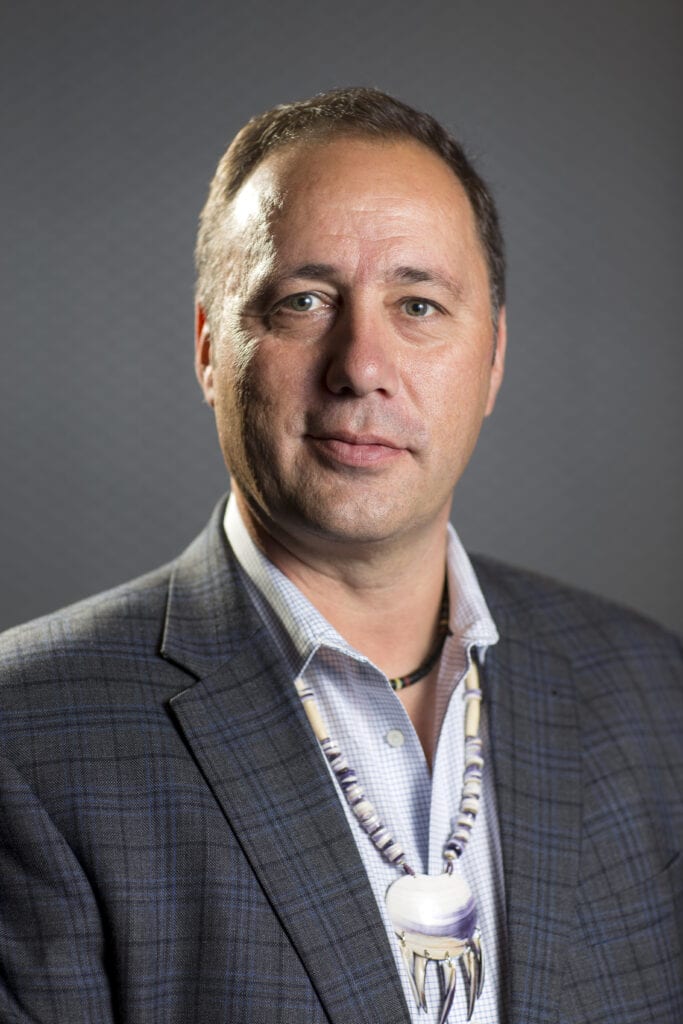Honoring Traditional Ecological Knowledge Is Critical
Published on IndianCountryToday.com, December 13, 2021
Kirk Francis, Sr.
Indigenous peoples have coexisted with the lands of the Americas since time immemorial. Our existence is inextricably intertwined with our homelands.
Our lands are the foundation and heartbeat of who we are as a people and as such, we have tended to them with the utmost respect and reverence. We have lived sustainably in our ancestral homelands for countless generations, relying on our traditional ecological knowledge (TEK), a body of information built upon observations, experiences and lessons derived from living in a sustainable manner with the natural environment.
Our traditional ecological knowledge systems evolve out of a spiritual framework that acknowledges humans are a part of nature, that there are interconnections among all things, and because of this, humans have responsibilities to live in harmony with all of creation.
Traditional ecological knowledge worldview and lifeways have been passed from one generation to the next, often in oral traditions in which elders transmit important traditional knowledge — including ecological knowledge — reflecting discovery, practical application and best practices for sustainability.
Traditional ecological knowledge is a practice that promotes environmental stewardship and sustainability through relationships between humans and environmental systems that have evolved over millennia, continue to evolve, and have been passed from generation to generation.
While we are speaking of traditional ecological knowledge in the singular, it is important to stress that our knowledge and experience are not a monolith. Scientific methodology, by definition, involves observation, hypotheses and testing, which in this case, has been completed and refined over generations by Indigenous communities.
Through testing theories and applying results in different cultures, environments and locales, we have crafted sustainable solutions to common issues such as land usage, water conservation, and ecological recycling.
The application of traditional ecological knowledge in forest management and cultural burning, for example, has reduced the risk of catastrophic wildfires and contributed to habitat restoration, as well as resilience to climate change.
Traditional ecological knowledge has also led to practical solutions for improving wildlife corridors and dealing with sea-level rise and changing shorelines. However, traditional ecological knowledge must be respected and protected as proprietary knowledge, as tribal nations and cultures carry the responsibility of its application for the well-being of our communities, homelands and seascapes.
On occasion, traditional ecological knowledge has been applied in ways that did not benefit tribal communities or, at worst, were applied in ways that were detrimental to our well-being.
Indigenous peoples have been marginalized and invisible — both historically and in modern times — including here in the United States. This involves the exclusion of our Indigenous knowledge, as it is often denied or misunderstood by Western culture and the mainstream scientific community.
In failing to recognize this wisdom, our people and nations are further silenced, and the truths that we have cultivated and protected for thousands of years go untapped as we barrel toward ecological catastrophe.
The announcement by President Joe Biden on Nov. 15, “Indigenous Traditional Ecological Knowledge and Federal Decision Making,” regarding an initiative to honor and incorporate traditional ecological knowledge into federal action, represents a significant advancement by this administration in deepening our nation-to-nation relationships.
This action moves us beyond the platitudes commonly associated with Native American Heritage Month and serves as an example of substantive and meaningful Indian Country inclusion and visibility.
While this announcement alone does not correct our larger invisibility challenges, it represents an acknowledgment that we co-exist as sovereigns and therefore, should have a vested interest in the lands we share, including working in partnership to face our mutual challenges, such as the protection and stewardship of our lands and environment.
Ultimately, if we fail to act timely and appropriately, the resulting climate impacts may be far too great to overcome, and we will all suffer.
This announcement by the president sets the foundation for the traditional ecological knowledge effort’s initial framework. It will be critically important for Indian Country to engage in forthcoming consultations to ensure that this administration gets the details correct and that the end product reflects a free, prior and informed consent model.
At this time, we call upon our greatest experts in this area, and for the creation of a necessary tribal advisory body, to help lead the way to a mutually agreeable traditional ecological knowledge partnership framework.
Since each sovereign tribal nation has its own scientific and resource management entities, it is also important that they exist on a level playing field with federal, university or state-sponsored scientific communities, with respect to data usage, funding for essential programming and autonomy in consultation that respects cultural and practical needs.
Traditional ecological knowledge must be accorded respect and equal standing with other scientific methodologies. Western science and its knowledge holders are highly valued in academic and scientific institutions. Those who share it are expected to be properly cited, valued, compensated, and provided secure employment for their time and contribution — i.e. tangible benefits for knowledge sharing.
Recipients of traditional ecological knowledge, whether individual, organizational, or governmental, must also accept the responsibility to apply the knowledge in beneficial ways that do no harm to the environment or to the tribal nations and cultures that share this traditional ecological knowledge.
Guidelines for obtaining and applying traditional ecological knowledge should reflect how to achieve mutually beneficial outcomes, how to navigate federal laws and interagency processes to incorporate traditional ecological knowledge, how to ensure traditional ecological knowledge projects are adequately supported through both capital investment and meaningful collaboration, how to appropriately respect the knowledge holders’ rights to decline participation, and how to assure proprietary rights to data and findings are also respected.
Guidance should also be designed to complement, not supplant, existing agency guidance related to traditional ecological knowledge and should build on past efforts to recognize and incorporate traditional ecological knowledge into federal scientific and policy decisions. Should tribal nations decide to share traditional ecological knowledge, the federal government should ensure that the application of that knowledge and complementary collaborative efforts benefit Indigenous communities, the United States, and our planet.
Working collaboratively on climate change and the preservation of ecosystems is essential to sustain our existence within the “web of life.”
True partnership across nations, domestically and internationally, will help heal the planet and set a more positive direction for generations to come. While we are encouraged by these developments, Indian Country has a long memory — one that is full of violated treaties, broken partnerships, and even well-intended initiatives that have been unexecuted, neglected, or unfunded.
As such, it is our hope that this traditional ecological knowledge initiative, and subsequent actions from the Biden Administration, will continue on a positive path toward equitable collaboration and tangible outcomes.
We will be at the table, and we are also prepared to lead.

Kirk Francis, Sr., is the Chief of the Penobscot Indian Nation and serves as President for United South and Eastern Tribes (USET) and the USET Sovereignty Protection Fund (USET SPF), an inter-Tribal organization representing 33 federally recognized Tribal Nations from the Northeastern Woodlands to the Everglades and across the Gulf of Mexico at the regional and national level.
